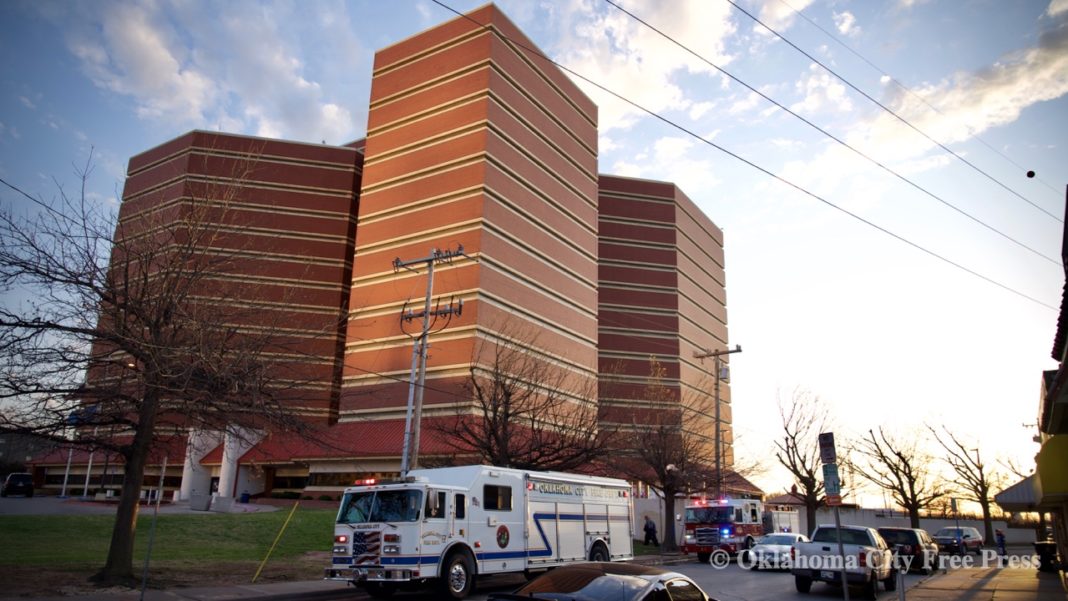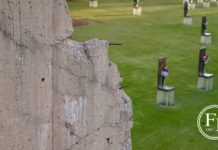Last Updated on May 3, 2021, 5:28 PM | Published: May 3, 2021
On Monday afternoon, members of the Detention Center Action Committee (DCAC) heard from their legal counsel about the Open Meeting Act, and how it applies to their body.
The Committee also created three subcommittees so the group can move forward on researching and finding answers for serious issues facing the Jail. In aid of the function of these subcommittees, committee member John Budd gave a brief overview on optimizing the committee process.
Working Groups
The DCAC was formed by the Jail Trust and tasked with finding solutions to several lingering problems in the operation of the Jail. Since the DCAC has almost twenty members, the plan has been to break the group up into three smaller working groups, one for each of the three major issues the committee means to address.
On Monday the DCAC formed three subcommittees. Each group will focus on one of the following: jeail depopulation, classification systems, and direct supervision. Members were asked to volunteer for at least one of the working groups.
After filling the groups, the task was set to find an “initiative manager” for each group. That person will act as the manager and coordinator of the group.
Member Chuck Laughlin volunteered to coordinate the group that will work on the issue of a classification system. The classification system used by the jail determines if a detainee is characterized as minimum, medium, or maximum security. The current classification system was developed in 1998. The working group will spend time researching successful classification systems from across the country.
Sue Ann Arnall volunteered to coordinate the group focusing on direct supervision. Member Adriana Laws volunteered to assist Arnall. The group will spend time researching successful supervision models from other similar-sized detention facilities.
The goal for the group is to recommend steps that the Trust can take in order to provide more supervision for detainees, which would allow detainees to spend significantly more time outside of their cells each day. Currently, most detainees get two to five hours out of their cell during a given day.
One reason this isn’t being done today at the Oklahoma County Detention Center comes down to staffing levels. There simply aren’t enough detention officers employed at the Jail to offer that close of supervision, currently.
Laws volunteered to coordinate the group focused on lowering the population of the Jail. As of Monday morning, the current population was 1466 with 118 of those already sentenced and awaiting transfer to Department of Corrections custody.
Out of that number, approximately 80% of people being held in the jail have not been convicted of a crime. Many are sitting in Jail waiting for their trial because they just can’t afford the amount of bail set by the court. This working group will work on finding options to lower the Jail Population.
Much focus has already been on diversion programs. Executive Director of the Criminal Justice Advisory Council (CJAC), Tim Tardibono, said that diversion programs were a huge part of why the population has gone down over the last six months. Tardibono also said that most municipalities in the County have moved more toward a cite and release practice, rather than booking so many people into the Jail.
Throughout this process Senator Ben Brown, one of only three Trustees on the committee, conspicuously avoided volunteering for any of the work groups.
Open Meetings
Attorney Megan Simpson, representative counsel of the DCAC, gave a brief overview of the Open Meeting Act.
She explained that most recommending bodies are not required to abide by the Act, which requires public notice of meetings and allows members of the public to observe those meetings. The Trust Indenture for the Jail Trust was constructed in such a way that their subcommittees are required to abide by the Act.
Simpson explained that any meeting of ten or more members of the subcommittee must be compliant with the Act. That includes electronic communication, like email.
Simpson added that the smaller working groups would not be subject to the Open Meeting Act.
Budd Pointers
John Budd, Chief Operating Officer of the State of Oklahoma, asked to give a brief presentation to the group. Budd’s background in many corporate boards and civil service organizations has included many working groups like the ones formed on Monday by the DCAC.
Budd’s main point was that, in order to be efficient and to stay “out of the weeds,” each working group needed first to determine what questions they were focused on. By determining that, their research could be narrowed to find the proper answers for the questions.
Budd encouraged his fellow members to be process-driven and fact-driven.
Future Meetings
As the DCAC is scheduled to meet on the first Monday of each month, Chair Francie Ekwerekwu recommended alternating meetings of the full group with meetings of the working groups. The entire subcommittee was amenable to that.
The working groups will begin meeting on the first Monday of June.
Columnist covering local government in Oklahoma City and Oklahoma County from May 2019 through June 2023.










